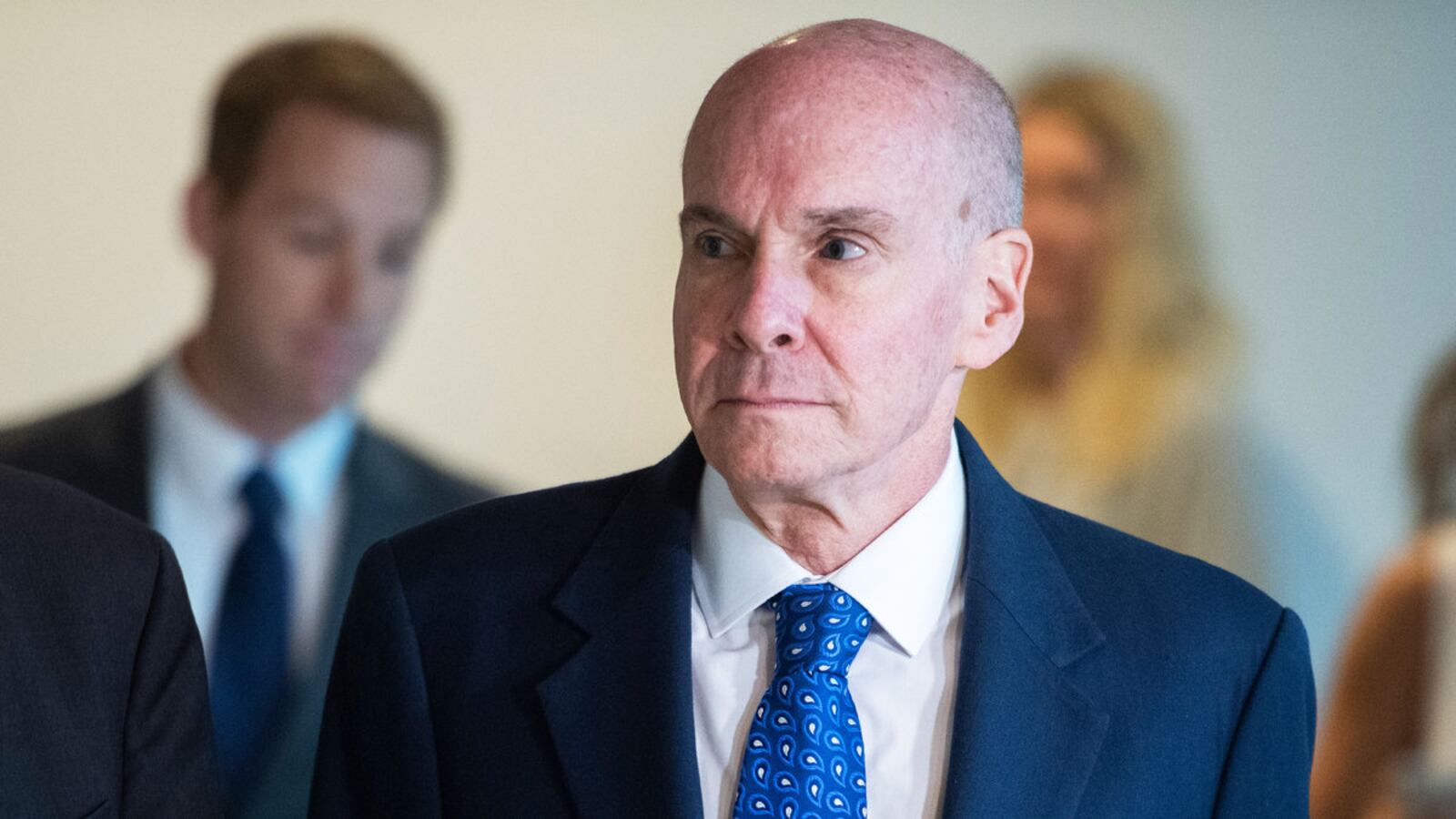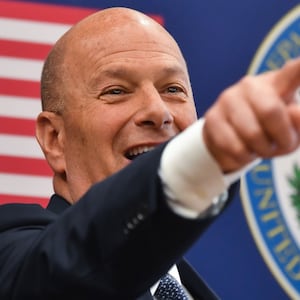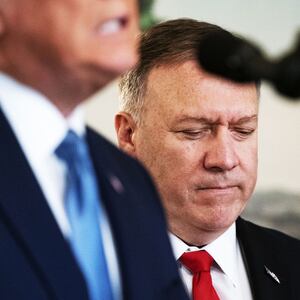Michael McKinley spent nearly four decades at the State Department, serving as Ambassador to Brazil, Afghanistan, Colombia, and Peru. He stayed there as the department was hollowed out by President Donald Trump. And he remained true to the mission even as it became politicized by Trump’s first Secretary of State, Rex Tillerson. But when Secretary of State Mike Pompeo failed to defend career foreign service employees caught up in the ever-expanding impeachment inquiry, McKinley finally decided it was time to walk out the door.
“I know there are difficult choices and compromises to be made on many of the issues we work. I also know that, as a Foreign Service officer, it is my duty to serve the incumbent administration faithfully, consistent with my oath to the Constitution,” McKinley, who most recently served as Senior Adviser, said in the newly released transcript. “It was, therefore, also my duty to resign when I felt I could no longer do so."
McKinley’s October 16 full testimony and that of Ambassador Marie Yovanovitch were released Monday as House Democrats prepare to shift the impeachment inquiry into Trump to its public phase. Testimonies of other key officials are expected to be made available as soon as Tuesday.
McKinley, who served as a top aide to Pompeo until last month, described to congressional investigators how on several occasions Pompeo refused to issue a statement of support for Yovanovitch as she faced attacks from Trump allies.
Pompeo had previously denied speaking to McKinley about the Yovanovitch statement, saying in a CNN interview last month that he “never heard” McKinley said anything about his concerns. But McKinley recounted that officials who tried to speak up on Yovanovitch’s behalf were either ignored or silenced.
House Democrats have for weeks been investigating allegations that Trump administration officials, including those in the State Department, as well as Rudy Giuliani and his associates ran a shadow foreign policy operation in Ukraine. As part of that probe, investigators are looking into efforts to oust Yovanovitch from her post in Ukraine in May 2019 for her perceived loyalty to the Obama administration. Lawmakers and their staffers have questioned witnesses about what Pompeo knew of Yovanovitch’s removal and the campaign to install someone new in Kyiv.
McKinley testified that he tried to talk to Pompeo about defending Yovanovitch in September, but the secretary of state did not offer a comment during that conversation.
“He just listened,” McKinley said. “Across the eightor nine days, whatever period it was, that I was seeking to raise this, nobody ever really said anything to me. It was, like, receive mode. And I just continued to raise the question in different ways, and I still would not receive a reaction.”
Days later, Megan Ortagus, the spokesman for the department, relayed the decision not to release a statement of support for Yovanovitch to McKinley in a phone call.
“She told me the secretary had decided it was better not to release a statement at this time and that it would be in part to protect Ambassador Yovanovitch,” MicKinley told investigators in his deposition.
“Ambassador Yovanovitch confirmed to me that she would welcome more public support from the department, that no one had reached out to her from senior levels of the department, and that she had retained private counsel,” McKinley said.
McKinley defended Pompeo at times, crediting him for “substantially chang[ing] the environment inside the building” after Tillerson left morale at Foggy Bottom in shambles. But after months of relative calm, reports of what McKinley perceived as the inappropriate use of diplomats to advance the White House’s political agenda rattled the veteran official.
“I think you've also said that part of the reason why you decided to resign was that you couldn't be blind to what was happening, and what was happening was efforts to use the State Department to dig up dirt on a political opponent,” Intelligence committee chairman Adam Schiff asked, according to the transcript. “Is that fair as well?”
“That is fair,” McKinley replied. “And if I can underscore, in 37 years in the Foreign Service and different parts of the globe and working on many controversial issues, working 10 years back in Washington, I had never seen that.”
Later in his deposition, McKinley described a meeting with Deputy Assistant Secretary George Kent, who told McKinley he was concerned about the reasons the State Department gave for not complying with congressional requests for information.
In an Oct. 1 letter to Foreign Affair Committee Chairman Eliot Engel (D-NY), Pompeo had accused the committee staffers of attempting to “intimidate” and “bully” officials at the State Department.
Kent, McKinley said, indicated that if any bullying was occurring it was from the State Department itself.
“I think we also discussed, you know, the lack of financial support for paying for private counsel, which appalled me,” McKinley said of his conversation with Kent. “[Kent] basically said he would have to wait for a subpoena from the committee before he could appear but that he had been engaged in trying to support Ambassador Yovanovitch earlier in the year. He also mentioned that he thought that the lawyer was trying to shut him up…”
McKinley said he was so concerned he felt “absolutely obliged to send [the memo] to other people on the 7th floor.”
“I thought it indicated a lack of support that was broader than simply a question of statements,” he testified. “What was going to happen to other State Department people who might be drawn into the inquiry? it seemed that it was urgent to address the allegations that there was bullying tactics, et cetera. So I passed the memo on, and I didn’t get any answer from anybody.”








